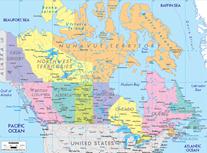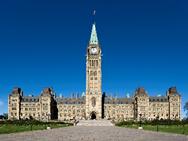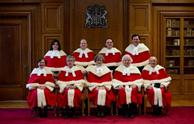What Makes a Canadian a CANADIAN?
(There is much more to being a Canadian than being born within our borders or choosing to become one.)
The Canadian National Spiritual Culture
(15 Attributes)
Our Canadian Spiritual Culture has a Noble Heritage of Harmony with Nature.
Our Canadian Spiritual Culture identifies us as both Physical and Spiritual beings.
Our Canadian Spiritual Culture treasures Individual and Independent Freedom.
Our Canadian Spiritual Culture defends and rebuilds the Nobility and Equality of each and every Soul.
Our Canadian Spiritual Culture is one of Determination, Perseverance and Patience.
Our Canadian Spiritual Culture is Artistic.
Our Canadian Spiritual Culture is Competitive.
Our Canadian Spiritual Culture is Industrious.
Our Canadian Spiritual Culture is Generous.
Peaceful Co-existence is etched into our Canadian Spiritual Culture.
Our Canadian Spiritual Culture is entrenched in Democracy.
Our Canadian Spiritual Culture is enshrined in the Rule of Law.
Our Canadian Spiritual Culture embraces Responsibility.
Our Canadian Spiritual Culture evolves through Diversity of Communities.
Our Canadian Spiritual Culture embraces Religious Diversity as a means to protect Individuality, Individual Expression and Individual Spiritual Development.
The world respects the diversity of over 1000 spiritual cultures that peacefully co-exist within Canada. This Heritage can be traced back to pre-European times when cultures evolved in the disparate environments existing within our borders. Peoples traded with each other and shared some customs, but everyone respected that decisions about the way they thought and lived had to be made by the local communities. In fact, people have always respected spiritual cultural traditions of other Canadians, but few understand all the Heritage, Values and Traditions shared as our National Canadian Spiritual Culture that flows out during national crises and victories. National awareness of these fifteen building blocks of our Canadian Spiritual Culture may help us to make progress through this present century.
Harmony with Nature
People have inhabited our country for over 10,000 years. How they learned to survive here in our vast array of geography and climate is our Heritage. Until the Europeans arrived in the 16th century, our  country comprised 3 or 4 million people who had learned how to co-exist and thrive from coast to coast to coast. They established a national culture of relatively harmonious existence with our environment and with each other. The diversity of their communities and their lifestyles was respected and admired from the earliest explorers to the present day. Our Canadian Spiritual Culture has a Noble Heritage of Harmony with Nature.
country comprised 3 or 4 million people who had learned how to co-exist and thrive from coast to coast to coast. They established a national culture of relatively harmonious existence with our environment and with each other. The diversity of their communities and their lifestyles was respected and admired from the earliest explorers to the present day. Our Canadian Spiritual Culture has a Noble Heritage of Harmony with Nature.
Our Spiritual Nature
 Canada’s ancestors were just as intelligent as our present generations and they pursued self-education and self-awareness by striving to survive and enjoy raising families in a magnificent but unforgiving environment. They recognized all sorts of patterns in nature and in the lives of the other living creatures. They saw that living creatures and people lost something when they died and thus they were aware that life contains a spiritual nature. They recognized God “The Creator” and they also recognized the spiritual reality of all living things. When missionaries brought knowledge of Jesus Christ to them, their faith in God was not diminished and their spiritual beliefs were not compromised as the Bible constantly stresses the importance of our spiritual reality in this world and the next. European settlers and immigrants from around the world brought different understandings of their own beliefs, but almost all brought with them a spiritual recognizance that is imbued in Canadian culture. Our Canadian Spiritual Culture identifies us as both Physical and Spiritual beings.
Canada’s ancestors were just as intelligent as our present generations and they pursued self-education and self-awareness by striving to survive and enjoy raising families in a magnificent but unforgiving environment. They recognized all sorts of patterns in nature and in the lives of the other living creatures. They saw that living creatures and people lost something when they died and thus they were aware that life contains a spiritual nature. They recognized God “The Creator” and they also recognized the spiritual reality of all living things. When missionaries brought knowledge of Jesus Christ to them, their faith in God was not diminished and their spiritual beliefs were not compromised as the Bible constantly stresses the importance of our spiritual reality in this world and the next. European settlers and immigrants from around the world brought different understandings of their own beliefs, but almost all brought with them a spiritual recognizance that is imbued in Canadian culture. Our Canadian Spiritual Culture identifies us as both Physical and Spiritual beings.
Independent Freedom
 Many of Canada’s provincial boundaries are much larger than most countries in the world. Our culture has absorbed this freedom to move about over vast distances. When we return from other nations, we immediately sense the joy of being able to freely roam as we please. Even though our sense of community imposes self-control, Canadians will never relinquish our physical and spiritual freedom. This sense of independent freedom to explore the physical and spiritual world is deep within the soul of our culture. Our Canadian Spiritual Culture treasures Individual and Independent Freedom.
Many of Canada’s provincial boundaries are much larger than most countries in the world. Our culture has absorbed this freedom to move about over vast distances. When we return from other nations, we immediately sense the joy of being able to freely roam as we please. Even though our sense of community imposes self-control, Canadians will never relinquish our physical and spiritual freedom. This sense of independent freedom to explore the physical and spiritual world is deep within the soul of our culture. Our Canadian Spiritual Culture treasures Individual and Independent Freedom.
Equality
 As our environment can be harsh to humans, Canadians have learned that every individual is responsible to contribute to the well-being of each community. We must respect each other and co-operate to survive in our harsh climate. Thus everyone must be treated equally as we need the best from everyone. Even in present times, storms and floods may arrive and destroy; however, Canadians immediately strive to help restore the equality of life for the dispossessed. Our Canadian Spiritual Culture defends and rebuilds the Nobility and Equality of each and every Soul.
As our environment can be harsh to humans, Canadians have learned that every individual is responsible to contribute to the well-being of each community. We must respect each other and co-operate to survive in our harsh climate. Thus everyone must be treated equally as we need the best from everyone. Even in present times, storms and floods may arrive and destroy; however, Canadians immediately strive to help restore the equality of life for the dispossessed. Our Canadian Spiritual Culture defends and rebuilds the Nobility and Equality of each and every Soul.
Determination, Perseverance and Patience
Living in this land often requires great determination, perseverance and patience. Enduring long  journeys, overcoming great obstacles and waiting for crops to mature has produced admirable survival and exploration character traits in our citizens. We originated from great hunters, fishermen, gatherers and cooks. The imbedded character traits of these skills must be practiced by all Canadians if we are to remain stewards of our environment and nurturers of families in this domain. Our Canadian Spiritual Culture is one of Determination, Perseverance and Patience.
journeys, overcoming great obstacles and waiting for crops to mature has produced admirable survival and exploration character traits in our citizens. We originated from great hunters, fishermen, gatherers and cooks. The imbedded character traits of these skills must be practiced by all Canadians if we are to remain stewards of our environment and nurturers of families in this domain. Our Canadian Spiritual Culture is one of Determination, Perseverance and Patience.
Artistic Creativity
 Art poured out of the earliest inhabitants of Canada who expressed their sense of the beauty of our land and its living creatures on stone, in stone and in wood carving. Their clothing, body paintings and music were beautiful artistic expressions. More art forms were adopted with each new group of settlers. This artistic nature is intrinsic to Canadian culture and it often expresses itself as a reflection of the grand stature of our geographic features. Our Canadian Spiritual Culture is Artistic.
Art poured out of the earliest inhabitants of Canada who expressed their sense of the beauty of our land and its living creatures on stone, in stone and in wood carving. Their clothing, body paintings and music were beautiful artistic expressions. More art forms were adopted with each new group of settlers. This artistic nature is intrinsic to Canadian culture and it often expresses itself as a reflection of the grand stature of our geographic features. Our Canadian Spiritual Culture is Artistic.
Competitiveness
 There is an abundance of living creatures in Canada who our forefathers studied and learned from. The competition for food and habitat could not be over looked. Thus we acquired a competitive nature that challenged us to become strong and clever peoples. New Canadians often don’t understand why Lacrosse and hockey are so important to Canadians. Lacrosse was a favourite sport for centuries before the Europeans arrived. Hockey brought competition and joy to our spirits in the dead of winter. It draws us away from the temptations of idleness, lethargy and hibernation and enables us to overcome our fear of nature. Canadians learn that winter can be loved just as much as the other three seasons.
There is an abundance of living creatures in Canada who our forefathers studied and learned from. The competition for food and habitat could not be over looked. Thus we acquired a competitive nature that challenged us to become strong and clever peoples. New Canadians often don’t understand why Lacrosse and hockey are so important to Canadians. Lacrosse was a favourite sport for centuries before the Europeans arrived. Hockey brought competition and joy to our spirits in the dead of winter. It draws us away from the temptations of idleness, lethargy and hibernation and enables us to overcome our fear of nature. Canadians learn that winter can be loved just as much as the other three seasons.
(For those who judge the professional sport of hockey, they should be aware that the professional version of hockey is an aberration of the game designed for entertainment, which appeals to the baser natures of humanity. The game played on frozen ponds and on neighbourhood rinks and roadways produces incredible results in our youth in regards to character, physical and mental development.)
Competitiveness is an integral element of our heritage. Competition with nature and other peoples is a source of adventure, learning and personal development. It builds self-esteem, confidence, initiative, strength, resilience and fortitude throughout our national culture. Our Canadian Spiritual Culture is Competitive.
Industrious
Our vast country spreads its resources all over. Thus it is crucial that Canadians trade, share and produce  for each other’s benefit, never mind supply other nations. It is impossible to survive in Canada without storing up extra necessities. Our distinct four seasons don’t allow for us to live on a day to day basis. We must think ahead and plan our futures. Our Canadian Spiritual Culture is Industrious.
for each other’s benefit, never mind supply other nations. It is impossible to survive in Canada without storing up extra necessities. Our distinct four seasons don’t allow for us to live on a day to day basis. We must think ahead and plan our futures. Our Canadian Spiritual Culture is Industrious.
Generous
The abundance we can produce in the areas we live is usually more than we need for our own use. Thus, Canadians have always been generous in helping others who haven’t been able to meet their own needs. This aspect of our culture led Canada to introduce a wide range of “social-safety-nets” ahead of  most other nations. As long as Canadians demonstrate our Canadian cultural attributes, we will be able to remain a generous society. However, those who don’t choose to become contributing Canadians, will undermine our country and our culture. Such people will never truthfully feel they belong here, and their citizenship will be meaningless to them. Our Canadian Spiritual Culture is Generous.
most other nations. As long as Canadians demonstrate our Canadian cultural attributes, we will be able to remain a generous society. However, those who don’t choose to become contributing Canadians, will undermine our country and our culture. Such people will never truthfully feel they belong here, and their citizenship will be meaningless to them. Our Canadian Spiritual Culture is Generous.
Peaceful Co-existence
 Communities have grown to recognize the importance of negotiating our differences and to avoid conflict and war at all cost. Communities that destroy each other’s resources know that both will perish. A community that chooses to steal and rob others threatens all others. They are repugnant to our Canadian spirit and soul. Peaceful co-existence is etched into our Canadian Spiritual Culture.
Communities have grown to recognize the importance of negotiating our differences and to avoid conflict and war at all cost. Communities that destroy each other’s resources know that both will perish. A community that chooses to steal and rob others threatens all others. They are repugnant to our Canadian spirit and soul. Peaceful co-existence is etched into our Canadian Spiritual Culture.
Democracy
 A more recent factor in the formation of the national culture has been our parliamentary government. Such things did not exist within our original communities, but as we gained greater access to the breadth of our nation and as we began to intermix our communities, these institutions began to mold other attributes into our culture. Our form of democracy assures that every Canadian has some input into the selection of our political leaders, although the majority is not often consulted on the new laws and regulations they make. From the council lodges of our cultural ancestors to the chambers of government, dialogue and service to others is essential to our natures. Our Canadian Spiritual Culture is entrenched in Democracy.
A more recent factor in the formation of the national culture has been our parliamentary government. Such things did not exist within our original communities, but as we gained greater access to the breadth of our nation and as we began to intermix our communities, these institutions began to mold other attributes into our culture. Our form of democracy assures that every Canadian has some input into the selection of our political leaders, although the majority is not often consulted on the new laws and regulations they make. From the council lodges of our cultural ancestors to the chambers of government, dialogue and service to others is essential to our natures. Our Canadian Spiritual Culture is entrenched in Democracy.
Rule of Law
 Canada’s Common Law legal system is founded upon the concept of being “Innocent Until Proven Guilty”. This is a powerful protection for our cultural insistence upon our personal freedom. It puts the onus upon accusers to discover evidence of wrong doing before Canadians are judged by their peers. The fact that our laws are made by parliament justifies the concept that the majority choice laws will be acceptable as an attribute of our culture.
Canada’s Common Law legal system is founded upon the concept of being “Innocent Until Proven Guilty”. This is a powerful protection for our cultural insistence upon our personal freedom. It puts the onus upon accusers to discover evidence of wrong doing before Canadians are judged by their peers. The fact that our laws are made by parliament justifies the concept that the majority choice laws will be acceptable as an attribute of our culture.
(Even though this principle is sacred to us, in practice politicians may readily usurp the opinions and beliefs of the majority.) Nevertheless, the “Rule of Law” is most definitely an integral element of Canadian culture. People who break our criminal laws do not respect Canadian culture. Those who purposely break our Civil Laws are to be cautioned, but since we have thousands and thousands of such laws, of which, many are perceived to be overly restrictive and constrictive to free men and women. Offences are certainly misdemeanors, but are rarely grounds to deny one’s Canadianism.
 (New Canadians are often surprised to see so many regulatory signs on our roads and properties, but many Canadians feel this represents a somewhat over-zealous trait towards controlling Canadian behaviour. This may appear to be a Canadian cultural attribute, but I would classify it merely as a cultural attribute of our politicians. There should always be a flexible line between our Canadian culture and the barriers we draw around our behaviors and actions in civil matters. For example, the right to sue in situations of our own bad judgment is unfair in most cases. When we take risks we deserve the pleasure or failure consequences of our actions. Other must not pay for our own foolish mistakes or dangerous risks.)
(New Canadians are often surprised to see so many regulatory signs on our roads and properties, but many Canadians feel this represents a somewhat over-zealous trait towards controlling Canadian behaviour. This may appear to be a Canadian cultural attribute, but I would classify it merely as a cultural attribute of our politicians. There should always be a flexible line between our Canadian culture and the barriers we draw around our behaviors and actions in civil matters. For example, the right to sue in situations of our own bad judgment is unfair in most cases. When we take risks we deserve the pleasure or failure consequences of our actions. Other must not pay for our own foolish mistakes or dangerous risks.)
Our Canadian Spiritual Culture is enshrined in the Rule of Law.
Responsibility
Canadians feel that we should be individually “Responsible” for our actions in spite of the “RIGHTS” we have provided for our citizens. For example, our teenagers are not entitled to the car keys unless they have demonstrated they can behave and drive in a responsible manner. Rights are earned by demonstrating responsibility. Canada’s Charter of Rights and Freedoms is most certainly and admirable attempt by Canadians to act in a noble manner towards all citizens, but it is dangerously naked without a covering of Canadian Responsibilities. Rights and Freedoms must be earned by adopting and reflecting our national cultural values. Without this broad awareness and understanding, unique minority values and interests can easily dilute and even pollute the Canadian National Culture. Our Canadian Spiritual Culture embraces Responsibility.
Diversity of Community Cultures
 As people escaped to Canada from oppressive regimes and impoverished conditions, they adopted the Cultural Values of the Canadians they came in contact with. Many retained the better elements of their previous cultures and adapted to the harmonious reality of life in Canada. Canadians integrate their new Heritage Cultures and community traditions with our common Canadian National Culture. In this way, our Canadian Culture has retained its core values and expanded our cultural identity. Our Canadian Spiritual Culture evolves through Diversity of Communities.
As people escaped to Canada from oppressive regimes and impoverished conditions, they adopted the Cultural Values of the Canadians they came in contact with. Many retained the better elements of their previous cultures and adapted to the harmonious reality of life in Canada. Canadians integrate their new Heritage Cultures and community traditions with our common Canadian National Culture. In this way, our Canadian Culture has retained its core values and expanded our cultural identity. Our Canadian Spiritual Culture evolves through Diversity of Communities.
Religious Diversity
Canadians who enjoy becoming intimate with our natural environment quickly sense the mystic animism practiced by our ancient forefathers living off the land and its resources. During the past 500 years, settlers introduced religions from around the world and followed these beliefs to present times.
Many conflicts arose between these religious communities, but common sense eventually prevailed and we applied our Canadian Cultural Imperatives to find ways to understand and not fear each other. This state of inter-faith respect emerges out of our spiritual nature and purpose to prepare ourselves for our Eternal Spiritual Existence.
Our Canadian Spiritual Culture embraces Religious Diversity as a means to protect Individuality, Individual Expression and Individual Spiritual Development.
Canadian Charter of Heritage, Responsibilities and Spiritual Values.
Canadians are not so naïve as to think that all worldly cultures can peacefully co-exist. Human values, motives and behaviours extend to all extremities. Religious doctrine and social values often easily contradict each other. The human history of violence between nations, races, tribes and cultures is vivid and inscrutable evidence that Canada needs solid parameters for our shared spiritual, moral, and ethical culture. We are seekers of understanding, compromise, and if not harmony, at least peace amongst us.
150 years ago, when our country discarded our Colonial rule and declared our independence, we recognized and accepted the existing First Nations, Francophone, British and many other Cultures dwelling in Canada. At the same time, we recognized the need to separate Religion and State as best we could in a secularized network of government institutions. Our founders also recognized the importance of morals, ethics and values as well as alliance to the British Royal Kingdom, as foundational parameters for our Canadian Society. Thus, our secular culture and its institutions became anchored in the predominating Judeo-Christian monotheistic religions’ frameworks which are built upon spiritual pillars of Peace and Love of Humanity and Nature under our one Supreme God.
If any imported Spiritual Cultural Values conflict with these core legal principles of Canadian Spiritual Culture, these values cannot become Canadian and their adherents may not become Canadian Spiritual Citizens. Nevertheless, there is a potential compromise within Canadian Spiritual Culture on which Spiritual Beliefs can be unrestricted.
Canadian Spiritual beliefs outside the parameters of our native cultures and our Judeo-Christian Heritage Culture, may be accommodated in a Constitutional Amendment that protects our Canadian Spiritual Cultural Heritage, our Canadian Responsibilities and our Canadian Values. A Canadian Charter of Heritage, Responsibilities and Spiritual Values would not only secure our Heritage but also allow us to enable most peoples of conflicting spiritual heritage and spiritual values to integrate with our fundamental Canadian Spiritual Culture and live peaceably within our society.
This Charter need only define what has been described above and the peoples with conflicting spiritual heritage need only transfer their conflicting spiritual values into their eternal spiritual kingdoms. Their physical lives may embrace the Canadian Spiritual Culture whilst their spiritual lives transcend both their present physical and eternal spiritual existences.
As founder of the CFP, my branch of our Canadian Spiritual Culture, has roots in Biblical scriptures. King David prophesied the following almost exactly 3000 years ago:
“Why do the nations rage and the peoples plot in vain? The Kings of the earth take their stand and the rulers gather together against the Lord and against his Anointed One (Jesus Christ).” Psalm 2: 1, 2.
King David spoke of the people who later crucified Jesus Christ. Yet today, much of mankind rejects a belief in Canada’s God, neither of our First Nations or of later generations. As Canadians we humbly respect their choices, but we do not diminish our Canadian Spiritual Culture by joining them. Our Canadian Heritage still is founded upon belief in our Almighty God who rules over our Spiritual Kingdom on Earth and in Heaven. This is not a negotiable component of our Canadian National Spirit.
Of course, our faith and understanding of how God works in this world is open to interpretation, and we respect there will be Canadians who choose not to accept God’s existence in this life or the next. But, the depth of our spiritual existence as Canadians has many levels and many people may enjoy merely floating on the surface of our cultural reality. This is no reason for denying the depth or fabric of our Canadian Heritage. Diversity of beliefs is indeed integral to our Canadian National Spiritual Culture.
God Save Canada!
Jim Reid Founder: CFP
P.S. I will share a personal philosophical meditation I once had after several years of drinking in historical, religious and philosophical studies:
“If God doesn’t exist, life is a bad joke, but if God does exist, life has meaning and purpose. I choose to live with meaning and purpose.”
Thanks for reading this essay.
